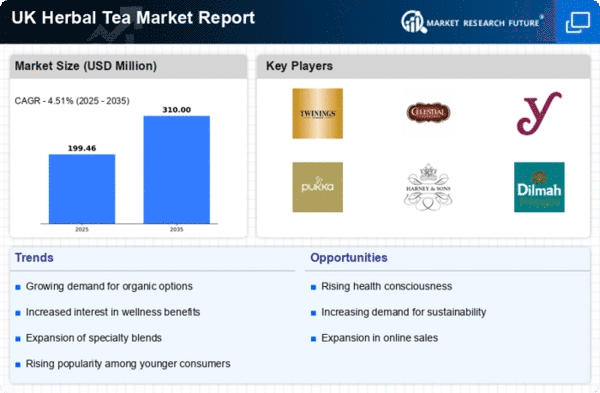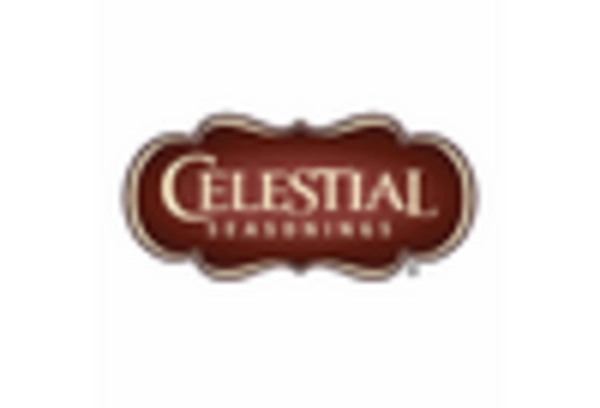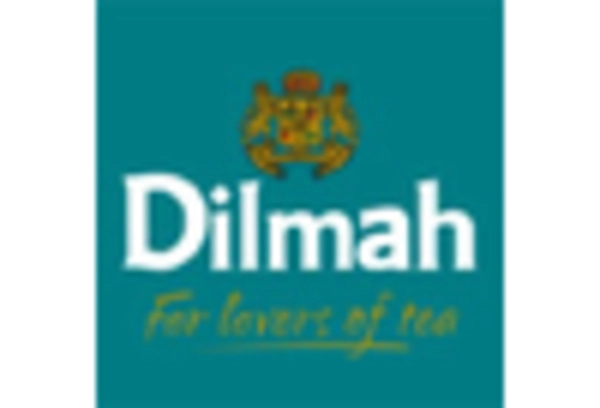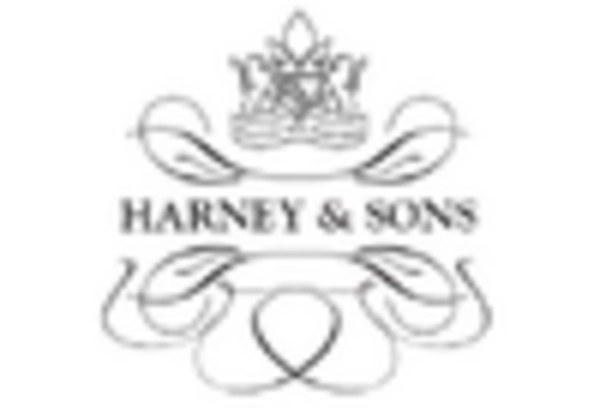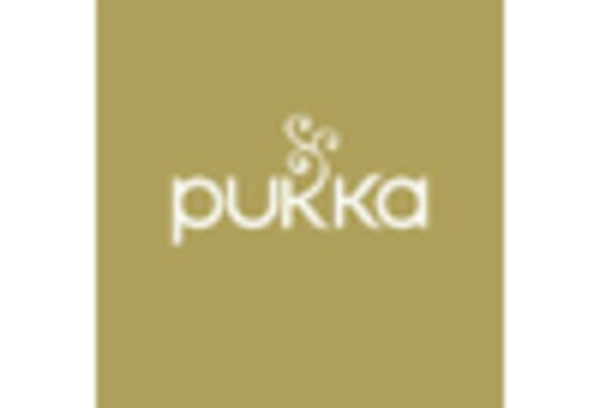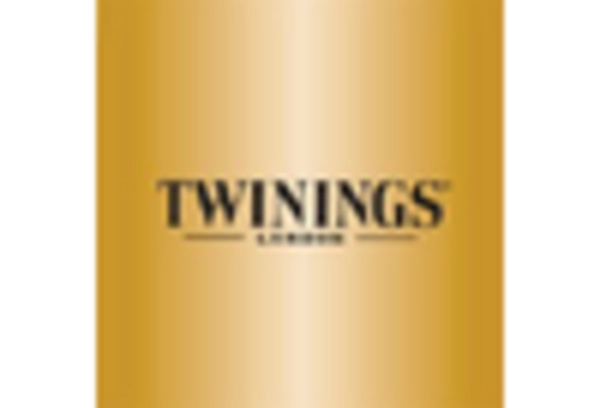Diverse Product Offerings
The herbal tea market is characterized by an increasing diversity of product offerings, which is a significant driver of growth within the industry. Manufacturers are innovating by introducing unique blends and flavors, appealing to a wide range of consumer preferences. This trend is evidenced by the introduction of specialty herbal teas, such as adaptogenic blends and functional teas targeting specific health concerns. The market has seen a 10% increase in new product launches over the past year, indicating a robust response to consumer demand for variety. This diversification not only enhances consumer choice but also strengthens the overall appeal of the herbal tea market.
Increased Consumer Awareness
Consumer awareness regarding the health benefits of herbal teas is on the rise, significantly impacting the herbal tea market. Educational campaigns and social media influence have played a crucial role in informing consumers about the various advantages of herbal teas, including their antioxidant properties and potential to reduce stress. This heightened awareness has led to a surge in sales, with the market witnessing a growth rate of around 12% in the last year. As more individuals become informed about the positive effects of herbal teas, the industry is poised for continued expansion, catering to a more health-conscious demographic.
Rising Demand for Natural Remedies
The herbal tea market in the UK is experiencing a notable increase in demand for natural remedies, as consumers increasingly seek alternatives to conventional pharmaceuticals. This shift is driven by a growing awareness of the potential health benefits associated with herbal teas, such as improved digestion and enhanced immunity. Recent data indicates that the market for herbal teas has expanded by approximately 15% over the past year, reflecting a broader trend towards holistic health solutions. As consumers prioritize wellness, the herbal tea market is likely to benefit from this inclination towards natural products, positioning itself as a key player in the health and wellness sector.
Growing Popularity of Online Retail
The rise of e-commerce has transformed the way consumers purchase herbal tea, significantly impacting the herbal tea market. Online retail platforms provide convenience and accessibility, allowing consumers to explore a wider range of products than traditional brick-and-mortar stores. Recent statistics indicate that online sales of herbal tea have surged by 20% in the past year, reflecting a shift in consumer shopping habits. This trend is likely to continue, as more consumers embrace the ease of online shopping, prompting companies within the herbal tea market to enhance their digital presence and marketing strategies.
Shift Towards Eco-Friendly Packaging
Sustainability is becoming a pivotal concern for consumers in the UK, influencing their purchasing decisions in the herbal tea market. The industry is responding by adopting eco-friendly packaging solutions, which resonate with environmentally conscious consumers. Recent surveys suggest that approximately 70% of consumers prefer brands that utilize sustainable packaging. This shift not only aligns with consumer values but also enhances brand loyalty, as companies that prioritize sustainability are likely to attract a dedicated customer base. The herbal tea market is thus adapting to these preferences, potentially leading to increased sales and market share.


